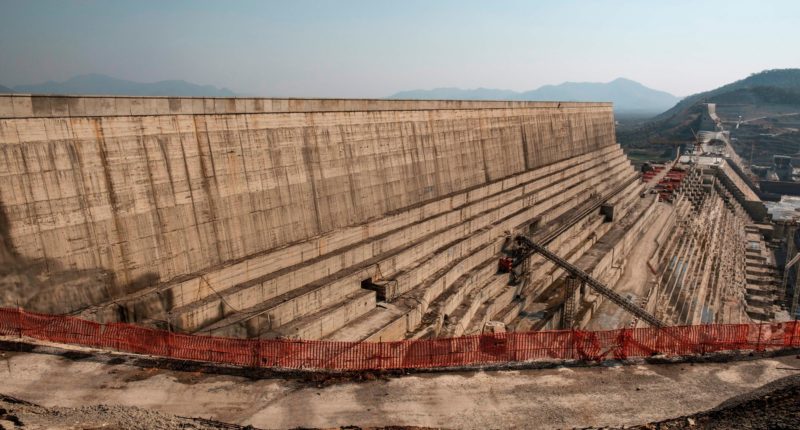Ethiopia’s Prime Minister said on Tuesday his country, Egypt, and Sudan reached a “major common understanding which paves the way for a breakthrough agreement” on a significant dam project that has led to sharp regional tensions and fears of military confrontation.
Egypt and Sudan view the dam as a serious threat to vital water supplies, while Ethiopia considers it essential for its electrification and development.
The statement by Abiy Ahmed’s office came as new satellite images show the water level in the reservoir behind the nearly completed $4.6bn Grand Ethiopian Renaissance Dam is at its highest in at least four years.
Last week Ethiopia acknowledged that water was gathering in the dam’s reservoir, though officials said this was a “natural” part of the construction process.
Ethiopia had said it would begin filling the reservoir of the dam, Africa’s largest, this month even without a deal as the rainy season floods the Blue Nile. But the new statement said the three countries’ leaders have agreed to pursue “further technical discussions on the filling … and proceed to a comprehensive agreement”.
But the talks among the country’s leaders showed the critical importance placed on finding a way to resolve tensions over the storied Nile River, a lifeline for all involved.
Ethiopia says the colossal dam offers a critical opportunity to pull millions of its nearly 110 million citizens out of poverty and become a major power exporter.
Downstream Egypt, which depends on the Nile to supply its farmers and booming population of 100 million with fresh water, asserts it poses an existential threat.
Egyptian President Abdel Fattah el-Sisi stressed Egypt’s “sincere will to continue to achieve progress over the disputed issues”, a spokesman’s statement said. It said the leaders agreed to “give priority to developing a binding legal commitment regarding the basis for filling and operating the dam”.
Sudanese Irrigation Minister Yasser Abbas told reporters in the capital, Khartoum, the three leaders “agreed to continue their negotiations to overcome the sticking points.”
He said the negotiations would proceed according to the basic principle of the dam’s “fair and reasonable use”, adding once the agreement has been solidified, Ethiopia will retain the right to amend some figures relating to the dam’s operation during drought periods.
Both Sudanese Prime Minister Abdalla Hamdok and Ethiopia’s leader called Tuesday’s meeting “fruitful”.
Negotiators have said key questions remain about how much water Ethiopia will release downstream if a multi-year drought occurs and how the countries will resolve any future disputes. Ethiopia rejects binding arbitration at the final stage.
Years of talks with a variety of mediators have failed to produce a solution.
The years-long dispute pits Ethiopia’s desire to become a major power exporter and development engine against Egypt’s concern the dam will significantly curtail its water supply if filled too quickly.
Egypt, which is almost entirely dependent on the Nile for its fresh-water supplies, sees the dam as an existential threat. Sudan has long been caught between the competing interests.
By:Isaac Clottey





